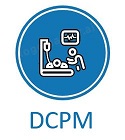Our goal is to validate patient-specific models using clinical data to deliver real-time measures of stroke volume (SV) and stressed blood volume (SBV). Both are true measures of heart function to guide monitoring and care in response to drug or fluid treatment in a patient-specific fashion as demanded in EU consensus statements. Cardiovascular (CVS) dysfunction is a leading cause of ICU admission, stay, cost and death. Managing circulation support is based on intuition and experience because no current measures exist to provide real-time diagnosis or response to care with greater than 50-60% accuracy. Thus, they drive blind, and there is no way to effectively guide or to personalise therapy, increasing the variability and cost of care, where improved productivity and outcomes are needed. UOC and ULG have developed unique, clinically validated CVS models for critical illness based on extensive ULG animal studies and data. Both are creating novel methods to identify critical, clinically relevant model parameters to make them patient-specific and personalise care at the bedside. First ever, clinically validated (model-based) non-additionally-invasive metric of fluid and inotrope responsiveness, using model-based SV and SBV. They will allow simultaneous direct titration and patient-specific optimisation of both therapies for the first time meeting a “holy grail” in CVS care in the ICU. The goal is to optimise and extend CVS models and identification methods to create novel, clinically validated measures of SBV and SV with collaboration of the hospital associated with ULG for translation for commercialisation.
Related eTime results on the Publications page!
